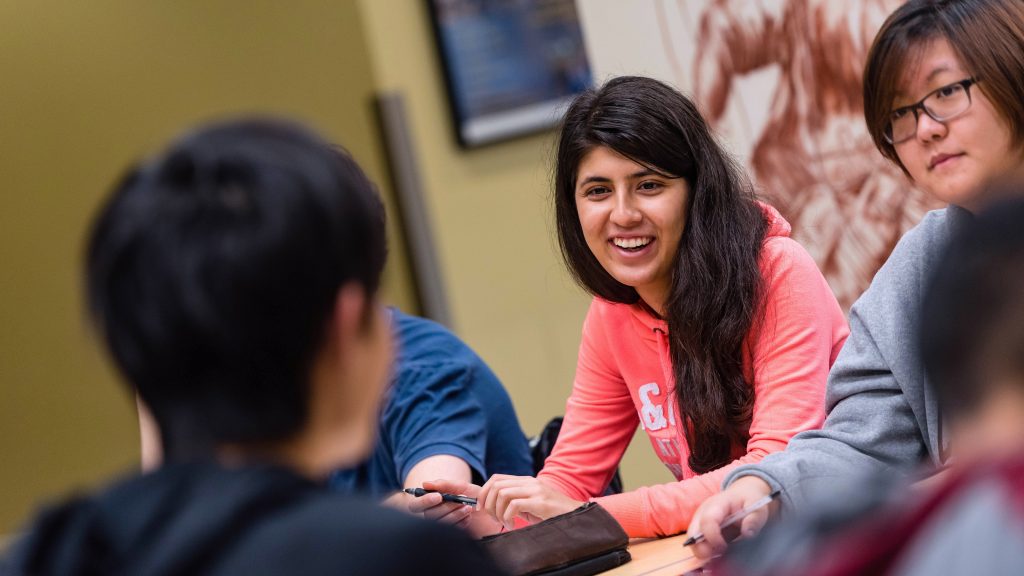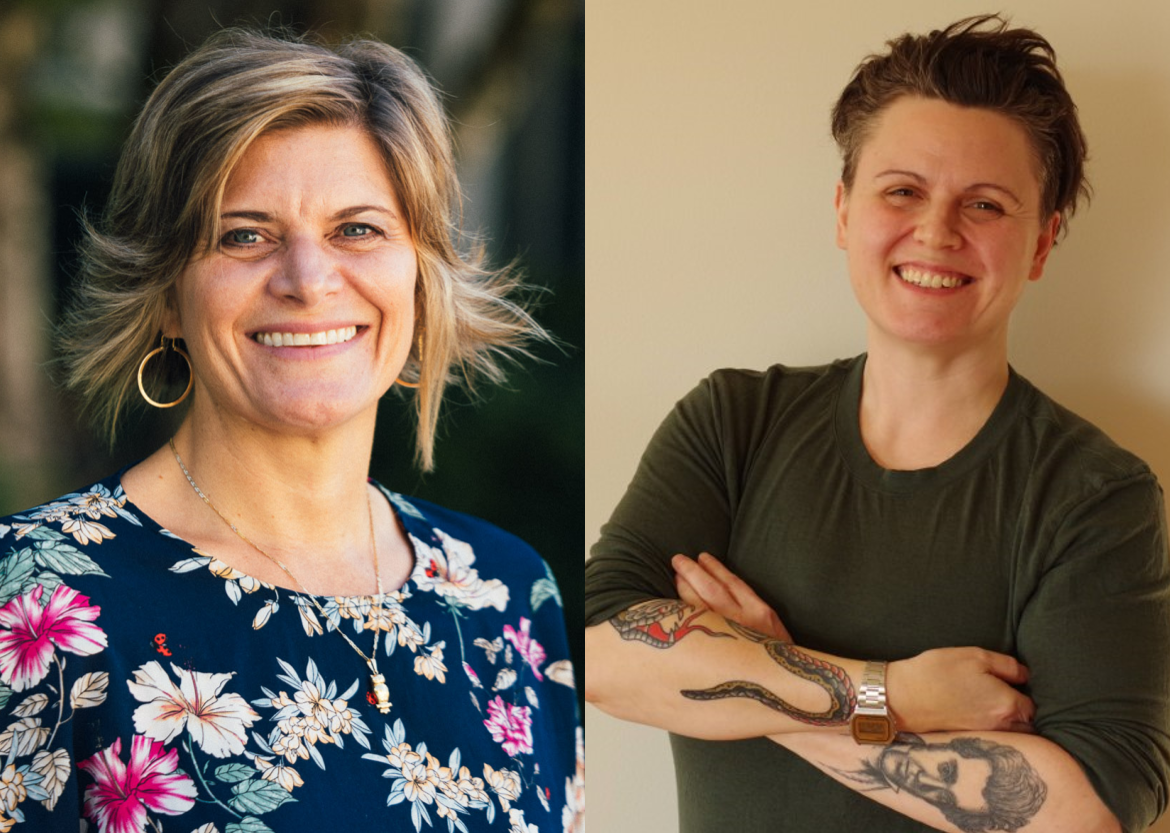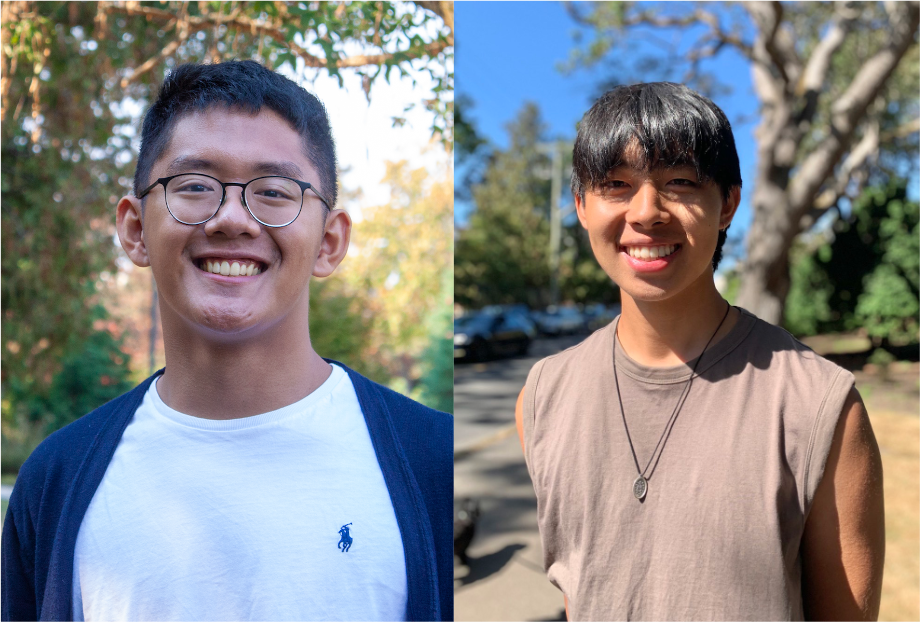

The Straker Prize is an award offered to two Arts One students every year in honour of Dr. Stephen Straker (1942-2004), a former member of the UBC Department of History and a strong supporter of the Arts One program. The students selected for the Straker Prize demonstrate high academic standing, and also exhibit promise and distinction in their contributions to their respective seminars, the Arts One program as a whole, and the wider community.
The Straker Prize winners from the 2021-22 academic year were Alexei Villareal and Adam Mah. Read more about their experiences in the Arts One program, as well as what they got out of being Arts One students below.
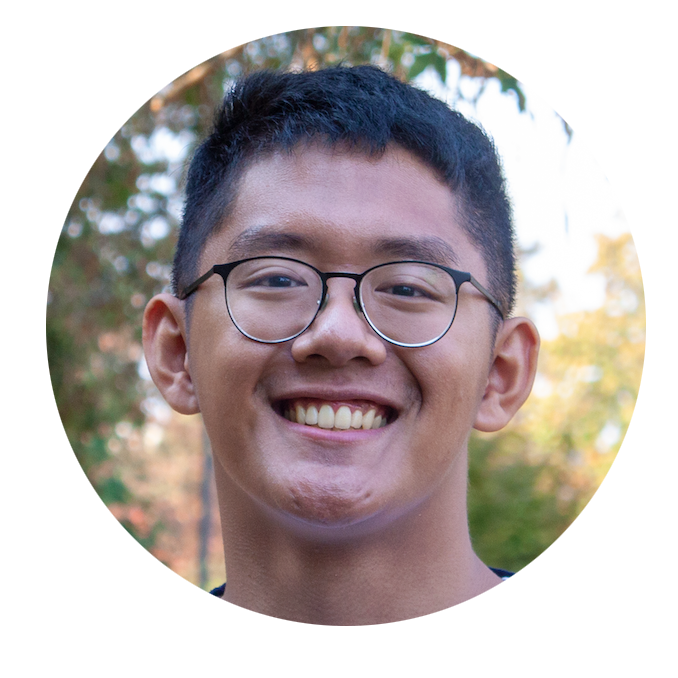

During Alexei’s time in Arts One, he was a student in Dr. Marshall’s seminar, and was always looking for unique ways to engage with course texts and the theme “Appearance and Reality.” The most memorable text he read that year was Ta-Nehisi Coates’s Between the World and Me, while the most challenging was Plato’s Republic. His favourite paper he wrote was a synthesis of Tupac’s music and Machiavelli’s The Prince. In his free time, Alexei can be found cycling with friends, or thinking about where he will get his next cup of coffee from.
Describe your first-year experience in 10 words or less.
A reset, an opportunity to go beyond my comfort zone.
Looking back, what did you enjoy the most about the Arts One program? What did you find the most challenging?
The structure of the Arts One program allowed for me to become a part of a close-knit community. I still keep in touch with many of my classmates. The central theme and the texts we studied have remained relevant in my studies. Had it not been for Arts One, I probably never would have read Grettir’s Saga. Arts One has similarly challenged me with texts and concepts I do not normally engage with. While I struggled with Nietzsche’s On the Genealogy of Morality at first, I ended up revisiting him in a later philosophy course and found I was much more comfortable with his thinking the second time around.
What is one word you’d use to describe Arts One and why?
Conversation. On a surface level, the obvious response to this is the format of the course: a lecture taught by a professor to their students, a seminar where you and your peers discuss the course texts, and a tutorial where you workshop your essays. However, if there is one thing I took away from Arts One, it is the way in which these texts, spanning from classical antiquity to today, share overlapping concerns. Despite their separation in time and space, there are threads connecting Plato and William Blake. In one of my own papers, I explored what The Communist Manifesto might have to say about Sex and the City. It is interesting to see how different texts can be read in conversation with one another. It may not seem obvious at first, but it is always worth investigating further.
What’s a topic you started learning in Arts One that you want to continue studying?
Metafiction and the issue of narrative voice are two ideas that began to challenge me in Arts One and continue to do so. I remember this concept being introduced when discussing Changez in Mohsin Hamid’s The Reluctant Fundamentalist and Shakespeare’s Hamlet. When a narrative is self-conscious and aware of itself, how does that change the way we engage with it? What conclusions do we then draw? It is such an interesting concept! I recently read Noor Naga’s If an Egyptian Cannot Speak English, which challenged my preconceptions of what a novel can accomplish within its own narrative, and I could not help but supplement my reading of it with what I learned in Arts One.
What are your plans for second year and/or beyond? Did being in the program have any influence on your path?
Currently, I am entering my 3rd year in the Honours English program with a minor in History. While I had already planned to major in English Literature before Arts One, if it had not been for the program, I do not think I would have seen myself fit for an intensive degree like Honours English. The enthusiasm and skills I developed during my time in Arts One have certainly contributed to my confidence in my education moving forward.
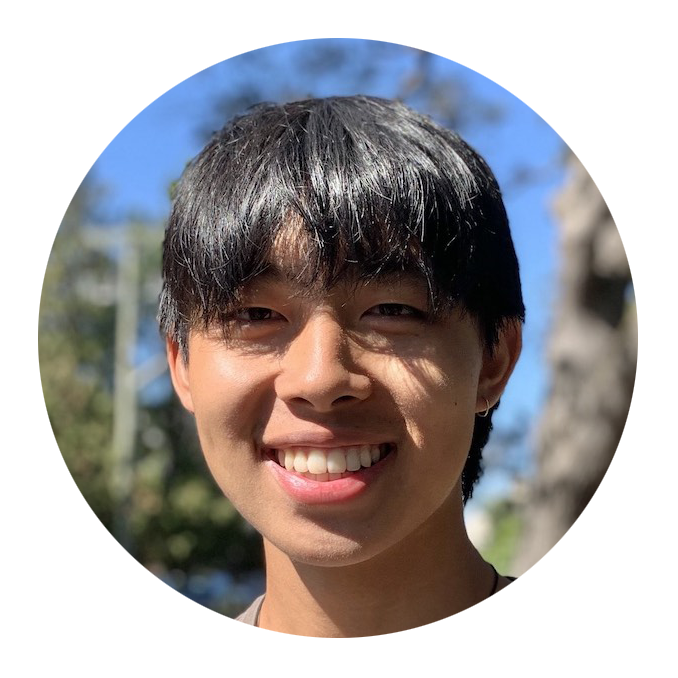

Adam was in Arts One 21/22, in the stream “Appearance and Reality.” He likes exploring, swimming at the beach, music, movies, books, creating stories, cooking, a good rest, and sometimes playing the guitar.
Describe your first-year experience in 10 words or less.
Challenging, but not without purpose and joy.
Looking back, what did you enjoy the most about the Arts One program? What did you find the most challenging?
It was a privilege to be able to focus on one book at a time for a week or two. When I have too much to juggle at once, I can’t fully process anything, so a lot of information flies right through my head. Sometimes, especially when I’m overwhelmed, I fantasize about being stranded on a desert island with only a single thing, like a book, and having a lifetime to pore over every word and page. In reality, I’m sure I’d get fed up with that, so a week or two was really the perfect amount of time. I also liked working with just physical books. I’m an old, tired stickler who likes to read things on paper.
I loved heading to my seminar in the morning. One of my favourite things is being in a space with a group of people genuinely engaged in the same topic. I think these discussions are best when everyone is part of a circle and able to face each other. I became close with my class, and each day, I heard fascinating ideas and interpretations that challenged my own. The small seminars were one of the things that drew me to the program, and are one of the things I miss most.
The essays were the most challenging part. There were many late nights and a few tears. With each essay, I felt like I was starting from scratch. I’m getting a little better now—I think a big part is letting go of perfectionism and embracing whatever I’m able to accomplish at a given time. Slowly, I’m learning to focus on the process as well as the results.
What was your favourite lecture in Arts One?
Our lecture on Blake’s The Marriage of Heaven and Hell was fascinating, especially learning about his painstaking ‘infernal method’ of printing and his notion of contraries. Though the lecture helped me understand Blake’s life and aims better, he remains just as mystifying to me.
What’s a valuable connection you’ve made because of Arts One? (Connection could be social, or it could be an academic connection)
My friend Alex, who I travelled to Barcelona with this summer for a Global Seminar!
What are your plans for second year and/or beyond? Did being in the program have any influence on your path?
At UBC, I’m working towards an honours degree in English Literature with a minor in Philosophy. I initially debated studying Fine Arts, but after Arts One, I decided on the humanities. I loved the discussion space, exploring other perspectives and ways of being in a room of like-minded people. I could see more and more the legacies of certain ideas, visions, and events in art and life today. I decided to pursue English Honours because I figured it was the most similar program to Arts One after first year.
I’m not sure what I want to do with the rest of my life and career, but I know I want to travel. I was lucky enough to take two amazing Global Seminars this summer, one on the literature and culture of the city of Barcelona, and the other on an international performing arts festival in Sibiu, Romania, and I got a travel bug. It’s awful, really. There’s a lot more to experiment with and explore. A job idea that makes me happy right now is becoming a high school English teacher.
